Who is an instrumentation fitter and what does he do?

Locksmith for instrumentation and automation (or instrumentation) - this is a person who, in the course of performing his professional duties, controls the correct operation of various automatic systems and measuring instruments... Based on this, we can conclude that this position belongs to the category of responsible persons and requires high-quality training (both theoretical and practical) from the person who occupies it. The profession will be of interest to those people who show a penchant for exact disciplines (physics, mathematics, drawing).
Who is that?
Representatives of the profession instrumentation locksmith are widely in demand at enterprises that, in the course of their operation, use modern technologies, served by automated systems... It is these specialists who ensure the high-quality and uninterrupted operation of various equipment and apparatus, and, depending on the qualifications of the locksmith, both the simplest equipment and complex complexes of mechanisms can be understood.
Employees who specialize in working with instrumentation and automation can be employed at enterprises in various industries.
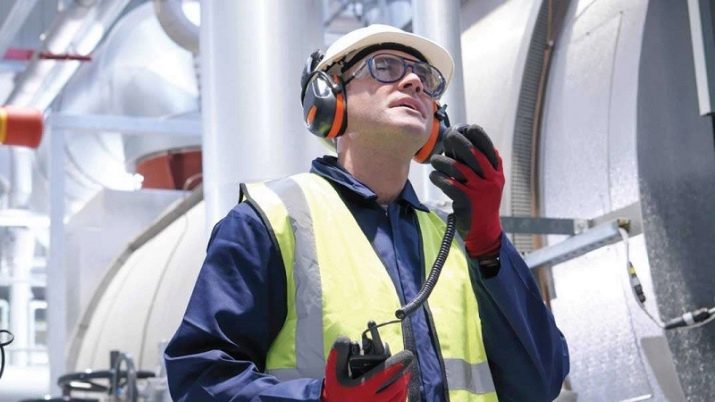
Generally speaking, the abbreviation for instrumentation and automation stands for "Instrumentation and automation" (which is the main object of the locksmith's activity). At the same time, the position of a Kipovite in itself can be heterogeneous and include not only locksmiths, but also electricians, engineers and other specialists.One way or another, it should be borne in mind that this profession is different from an asushnik.
Locksmiths of instrumentation and automation can work in different departments of the enterprise. For example, some organizations create centralized divisions - within their framework, repair and maintenance services are brought together, while others form decentralized divisions - such divisions are typical for large-scale firms and companies. Depending on the qualifications, work experience and the number of competencies a specialist possesses, he can be assigned one of 7 categories (from 2 to 8). At the same time, in the course of your career, you need to constantly strive to improve your professional level, thanks to which, among other things, you will be able to increase your salary.
If we talk about the characteristic features of the specialty, then it should be noted that there are both advantages and disadvantages. On the one hand, it is customary to allocate a fairly high salary (compared to the national average), on the other, it should be borne in mind that decent material support is associated with a high level of responsibility, as well as a high risk of injury at work.
Thus, before choosing the profession of an instrumentation locksmith as your future career, you must carefully weigh all the pros and cons and only then make an objective and rational decision.

Responsibilities
Before formal employment, every responsible and conscientious employer must familiarize the candidate for the position with a list of his future responsibilities... Traditionally, they are all listed in such official documents as the professional standard and job description. In general, it should be noted that the tasks that the instrumentation locksmith solves can differ significantly depending on the specific place of work, namely, the specifics of the activities of a particular enterprise and the wishes of the employer. In addition, an important difference in responsibilities among professionals is that higher ranked employees do more demanding jobs, and vice versa.
Let's consider some of the most traditional functions of an instrumentation locksmith. These include:
- ensuring the correct functioning of the reporting equipment;
- implementation of leadership functions (for qualified employees with a high rank);
- introduction of modern automated systems;
- development of technical standards;
- documentation maintenance (accounting and reporting);
- diagnostics of equipment operation;
- taking readings from measuring mechanisms;
- elimination of malfunctions and defects, assessment and identification of the causes of their occurrence;
- assembly of devices.
In addition, it is worth remembering that for non-fulfillment or poor-quality fulfillment of the duties assigned to a specialist, he may be held liable. Therefore, it is obvious that when applying for a job, you must be sure that you will cope with the tasks that the employer has entrusted to you.
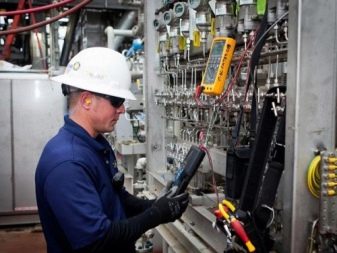

Knowledge and skills
For the high-quality performance of the tasks assigned to him, the instrumentation locksmith must know and be able to do a lot. Mandatory knowledge and skills include:
- knowledge of regulatory legal acts and the legal framework on the basis of which the specialist carries out his activities;
- knowledge of safety standards and regulations;
- knowledge of the Labor Code of the Russian Federation;
- the ability to quickly find and eliminate equipment malfunctions;
- knowledge of the design features of mechanisms and devices;
- ability to carry out installation and dismantling of equipment;
- the skill of introducing advanced experience and modern technologies into their daily professional activities;
- understanding the principles of document management, drawing up technical specifications, reading drawings.
At the same time, when looking for vacancies, attention should be paid not only to professional characteristics. So, many employers put forward requirements in relation to the personal qualities of future employees. It should be remembered that you must not only demonstrate your high qualifications, but also prove that you can painlessly integrate into an already established work team. Personal characteristics that are valuable for an instrumentation locksmith include:
- Analytical mind;
- technical type of thinking;
- developed spatial imagination;
- good vision;
- Ability to focus on a task and resist distractions;
- consistency in performing work tasks;
- responsibility, accuracy and discipline;
- ability to follow instructions.
At the same time, a successful combination of professional characteristics and personal qualities makes you a relevant and in-demand specialist who will stand out favorably against the background of all other job seekers for the position.
In addition, it should be borne in mind that it is desirable to constantly develop and improve both as a person and as a professional.
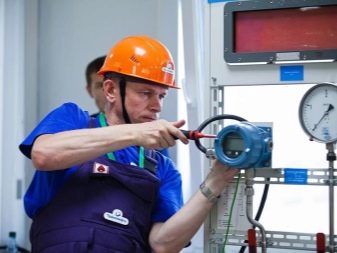
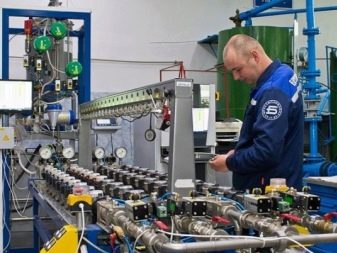
Education
If you are applying for the position of instrumentation locksmith, then first of all, it is necessary to obtain an appropriate education. At the same time, one should take into account the fact that such a specialty is taught by both higher and secondary vocational educational institutions. The first option is considered more advantageous, as it gives you the opportunity to develop professionally and climb the career ladder. So, after you graduated from grade 9 or 11, you need to visit the admissions office of the educational institution you are interested in and find out what exams you need to take and whether there are requirements for entrance examinations. For those who want to get the profession of an instrumentation locksmith, the most relevant will be technically oriented disciplines, in particular mathematics.
In the process of choosing an educational institution, you should be as careful as possible.... So, whenever possible, give preference to those educational organizations that are located in large cities and are respected among the professional community - in this case, you will have much more chances to get the desired job immediately after graduation. In the process of obtaining an education, one should be as responsible as possible, the fulfillment of all requirements should be approached with the utmost seriousness. It should be noted right away that the learning process is quite complex, since it requires a young person to master a large amount of knowledge of a technical orientation, the curriculum provides for complex courses. Increased attention should be paid not only to theoretical, but also to practical training. During practice and internships, try to show yourself as best as possible. Remember that this is your chance to get a job offer, as well as acquire the necessary skills and abilities to perform professional tasks in the future. The term of study may differ depending on which direction of study, program and level of education you decide to receive. It will be at least 3 years.
However, even after you've completed your basic education, you shouldn't stop and relax. If you want to actively move up the career ladder, then you need to attend a variety of specialized educational events on an ongoing basis - trainings, seminars, lectures, master classes. Thus, you will constantly stay abreast of all the latest trends in your professional field, and you will not lose relevance and relevance among employers.

Workplace and salary
Locksmiths who specialize in working with instrumentation and automation are in demand at enterprises in various fields, namely:
- energy;
- food industry;
- processing industry;
- metallurgical companies;
- enterprises of housing and communal services;
- oil and gas organizations;
- construction.
Accordingly, having received a specialized education, you will not be left without work and can be involved in a wide variety of areas of human activity. In this case, it is worth choosing exactly the industry that is more suitable for you in character and arouses interest.
It should be borne in mind that immediately after graduation and graduation, you can only apply for starting positions. At the same time, gradually gaining work experience and increasing your rank, you will have the opportunity to become the head of a department or even the director of an enterprise - in this respect, you are limited only by your personal ambitions.
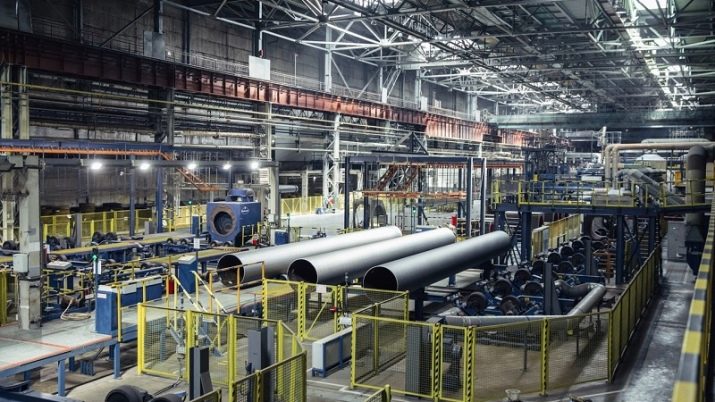
As for the salary of a specialist, it depends on a large number of factors, among which it is customary to single out:
- region of residence - a specialist who lives and works in the capital receives much more than the one who works in the provinces;
- qualification - the higher the level of a locksmith, the more money he earns;
- the level of education - in the absence of proper education, you can only count on low-paid support positions;
- the scope of the enterprise - for example, it is no secret that the highest salaries are received by specialists who work in the oil and gas sector.
If we talk about the average indicators of material remuneration for the work of an instrumentation locksmith in Russia, then they are at the level of 40,000 - 50,000 rubles. At the same time, specialists who work on a rotational basis or are involved in metropolitan companies receive several times more - their salary can exceed 100,000 rubles.
Thus, the position of an instrumentation mechanic, which belongs to the category of blue-collar occupations, is relevant and in demand.
However, it should be borne in mind that the specialist must have deep professional knowledge, as well as a large number of specialized skills.









